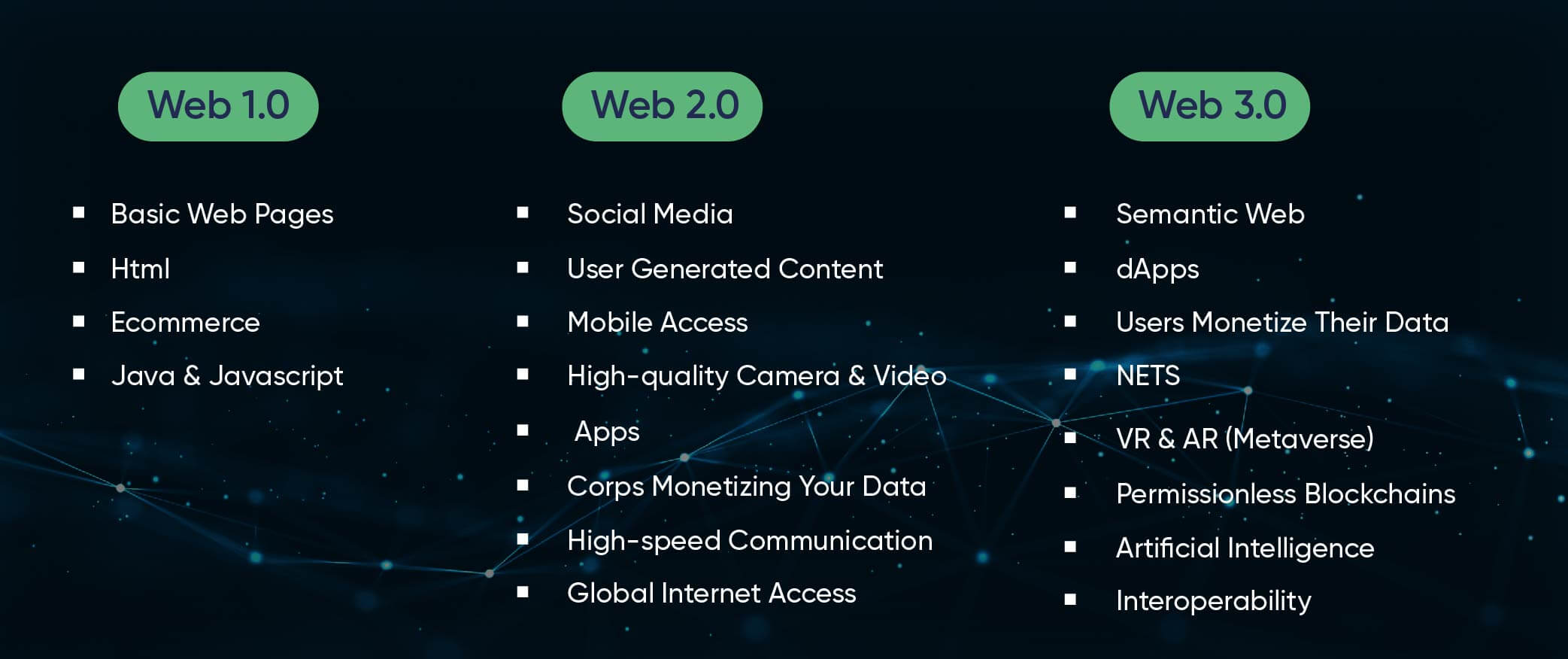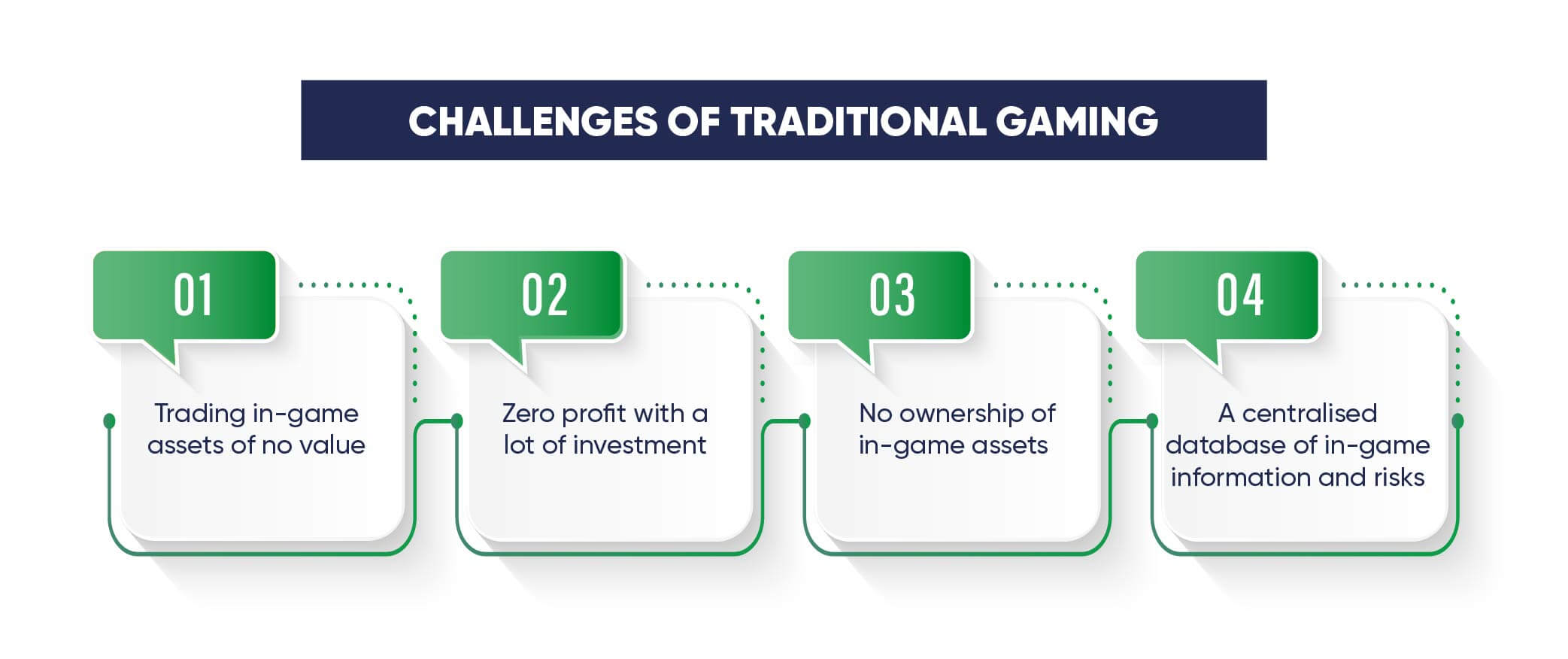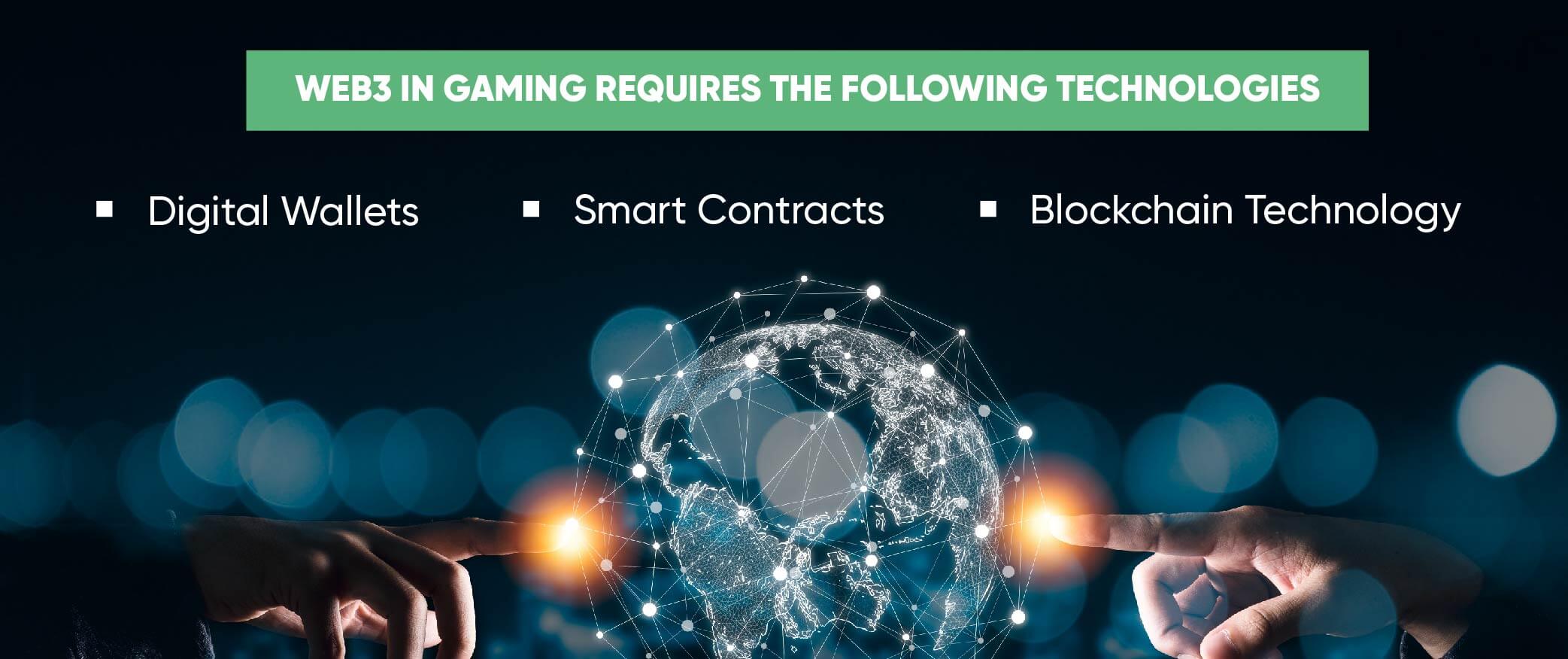
Introduction
Web3 & Blockchain Consultancy :
Web3 Gaming: How Blockchain Technology is Disrupting Gaming Ecosystem
The gaming industry is growing tremendously. The trend of Web2 is going to experience a significant transformation with the rise of Web3. Blockchain and decentralized technologies have ushered in a new era for gaming. In this blog, we’ll explain the factors of Web3 gaming and its role in transforming the gaming industry.Overview: The essence of Web 3.0
Web1 was the era of centralization, while Web2 was the era of decentralization. The Web 2.0 bubble has burst now. The power is going back to the people and away from companies like Facebook, Reddit, and YouTube. In a decentralized network, mass collaboration produces valuable content. User-generated content is a powerful force for change on the internet and in society.What is Web 3.0?
Web3 is a new web, an infrastructure of internet-based peer-to-peer protocols. P2P protocols bring a more democratic and decentralized internet, where privacy and security are enhanced. Web3 offers many advantages for users, including robustness and transparency as an open-source, public, and accessible platform. As a result, it has more utility and applications for software developers and end users. Blockchain is the technology that underpins Web3. However, unlike its older counterpart, this new web iteration uses a public ledger open database shared among multiple parties that anyone with access to the database can update.
Critical Applications & Use Cases Of Web3
Web3 offers industries many opportunities, from streamlining business processes to revolutionizing how people purchase goods. Let’s have a look at the use cases that this technology allows:1. Blockchain Games
Games using blockchain technology are the first practical use cases for the technology, creating individualized economies where individuals own objects. If you want to integrate blockchain into your existing games, BloxBytes can be your ticket to success.
2. Decentralised Autonomous Organisation
There is no central authority to guide a DAO; its members govern it. DAOs, which adhere to the blockchain philosophy of empowering its community members, give voting rights to their constituents. These voting rights prioritize people’s interests over influential individuals and groups and form a crucial governance system in the gaming ecosystem of web3.
3. Decentralised Finance
The Web3 platform facilitates the implementation of ideas through a decentralized financial system called DeFi. In the web3 ecosystem, the financial layer allows for a democratic financial system without any central authority, ensuring that no one can manipulate rules. BloxBytes is the leading Web3 development company specializing in DeFi, Game-Fi, and Meta-Fi.
4. Metaverse
The metaverse is an immersive, shared, and interactive virtual world, one of the most critical use cases for web3. The value the principles of Web3 provide is well suited to apply within this environment.
What is Web3 in gaming?
First-generation games were static and on-way, while later versions became more interactive. Web3 technology has allowed gamers to play digitally and enjoy a highly immersive, interactive experience. Web3 games are technically digital games that use blockchain for keeping data and making payments. Blockchain mechanisms have caused massive adoption of concepts like play-to-earn and non-fungible tokens. NFTs promise proof of ownership and seamless trading in digital assets. In addition, the play-to-earn gaming model has allowed players to relax and earn money while playing. Such innovations have led to the materialization of web3 in gaming and made it one of the most heavily invested sectors, with billions of dollars poured into it recently.
Features of Web3 Gaming Ecosystem
In the new web3 gaming model, players can buy and sell assets for rewards. Decentralization is responsible for the appeal and enjoyment of web3 gaming. Gaming also benefits from Web3, such as increased security. Below are some features of Web3 gaming;1. Interoperability
Players can exercise complete ownership over their in-game assets thanks to non-fungible tokens (NFTs). In web3 games, interoperability allows investments to move outside the game’s marketplace. In this way, players can sell their digital collectibles without losing money.
2. Transparency in the gaming world
The web3 gaming ecosystem runs autonomously with minimal central authority interventions. To change anything in these games is voted on by all players involved. Since then, many games have been built on the DAO model—making it easier for players to take control and keep out third parties.
3. Player-centric gaming experiences
The focus of web3 in gaming is to return power to players. It promises an environment tailored according to their needs.
Factors that led to the Web3 revolution in gaming
The following are Web3 technologies that may be related to gaming;1. Blockchain
Game owners and gamers can explore the gaming world with blockchain technology. Players get decentralization, immutability, and more with this revolutionary new way to play games.
2. NFTs
Many video games employ non-fungible tokens (NFTs), which act as digital representations of ownership licenses for an underlying asset, such as virtual land, to boost gameplay and player engagement. NFTs are transferrable between wallets, making digital assets tradable with exclusive ownership rights.
3. Artificial intelligence
Artificial intelligence is becoming increasingly popular in improving engagement in traditional gaming. In addition to improving the speed of interactions, it enhances their usefulness.
4. Tokens
The use of tokens in a game can motivate users. However, other aspects of the game may be adversely affected if the value of these tokens rises. Due to the Internet, in-game tokens can now be used as currency, allowing the gaming community to grow and profit.
5. AR and VR
Virtual reality (VR) and augmented reality (AR) are changing how we play games. AR and VR technology allow players to experience their virtual environment more interactively, while VR will enable them to connect and socialize through games.
